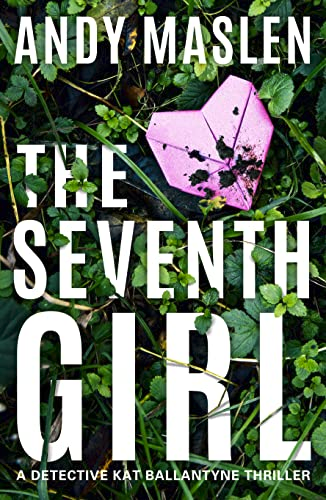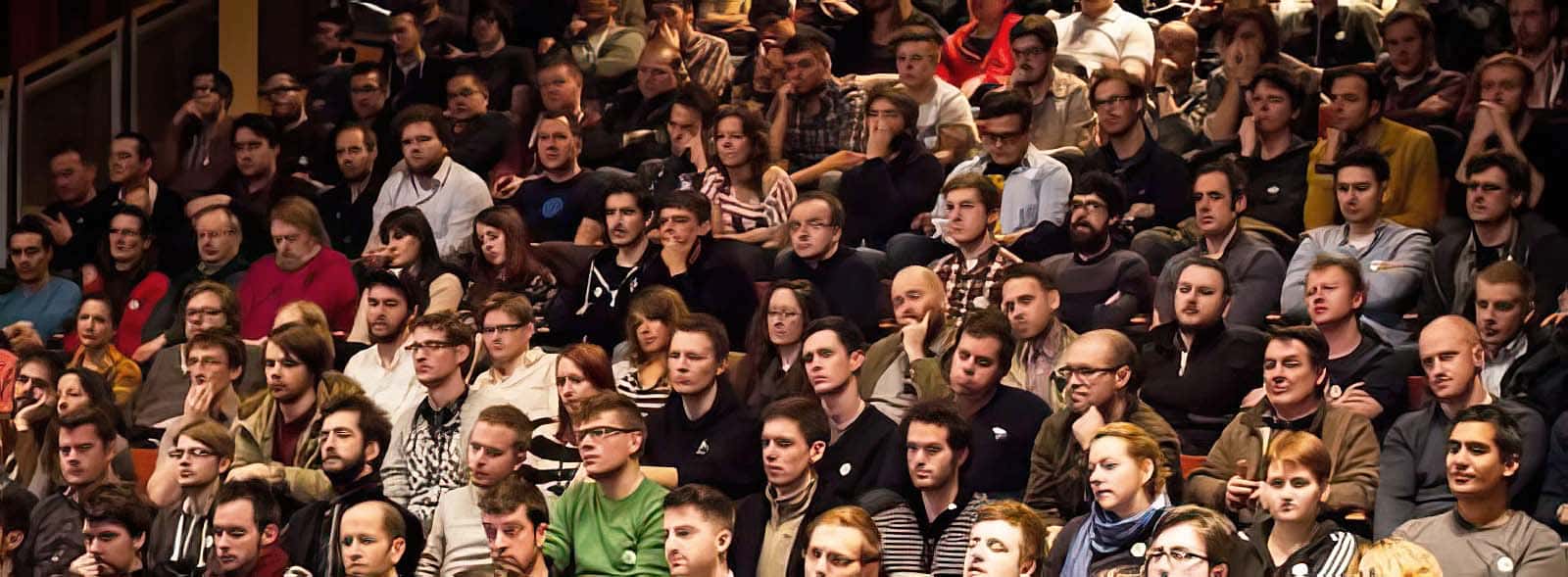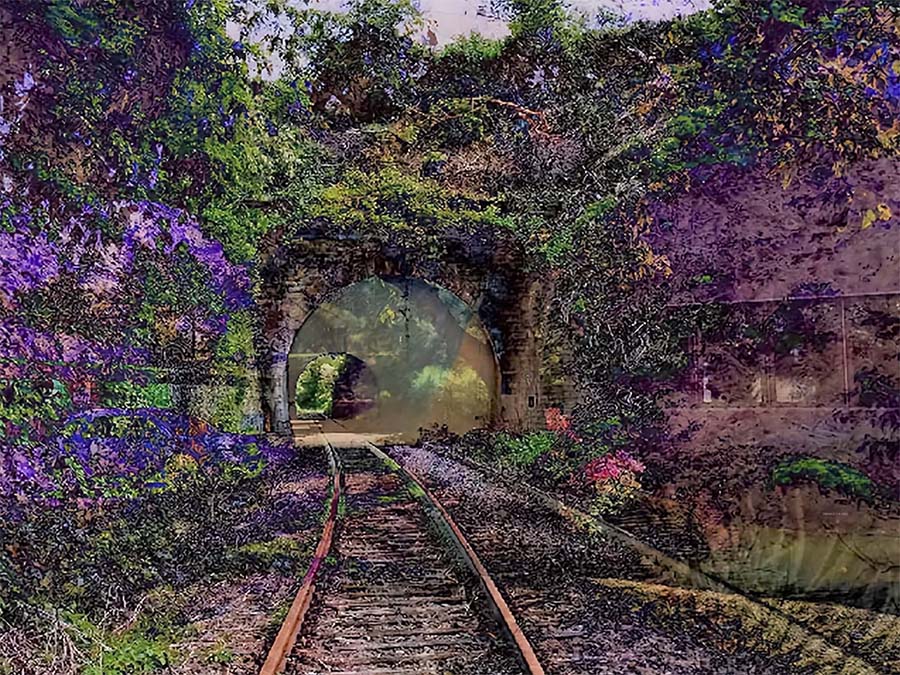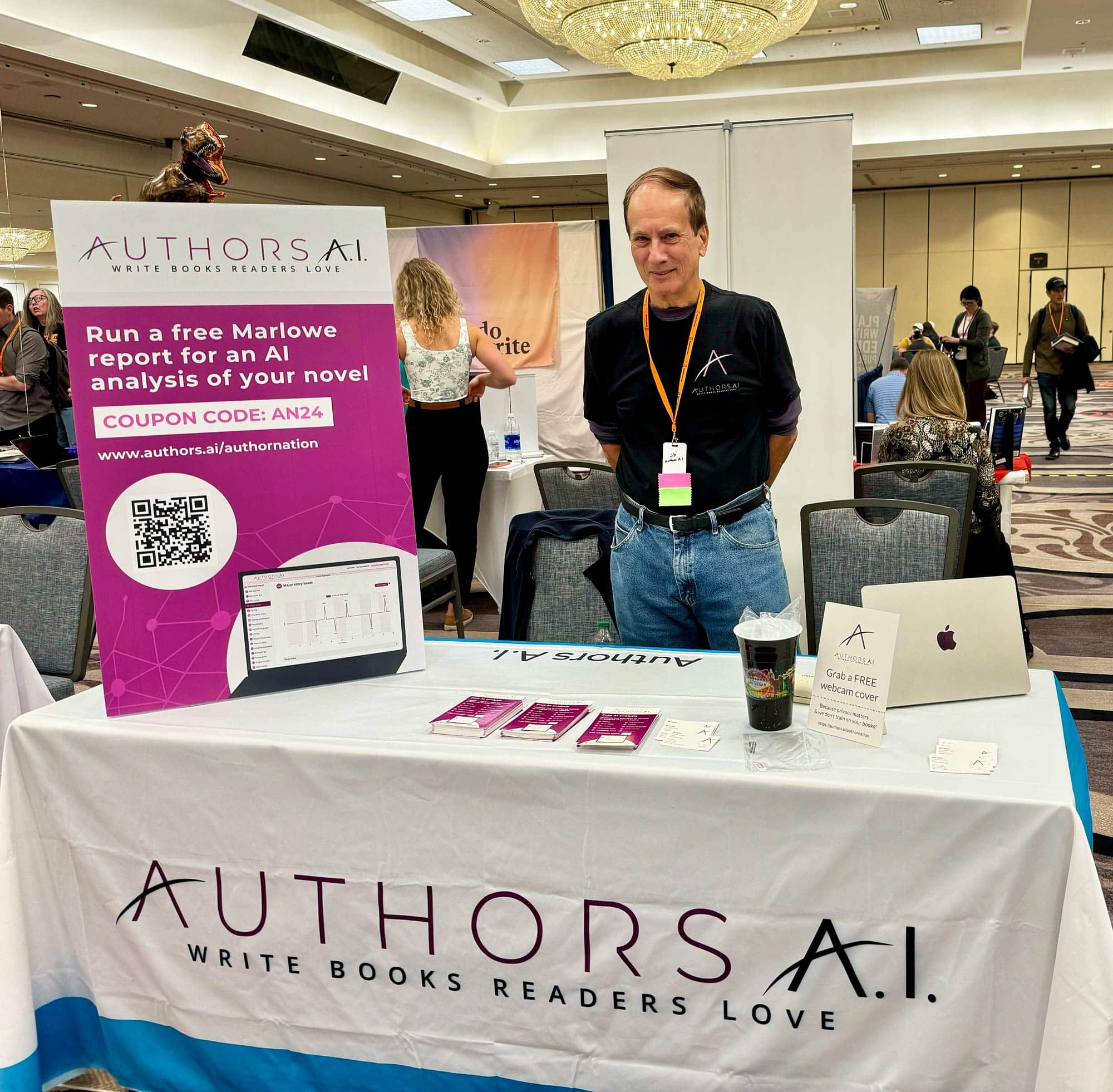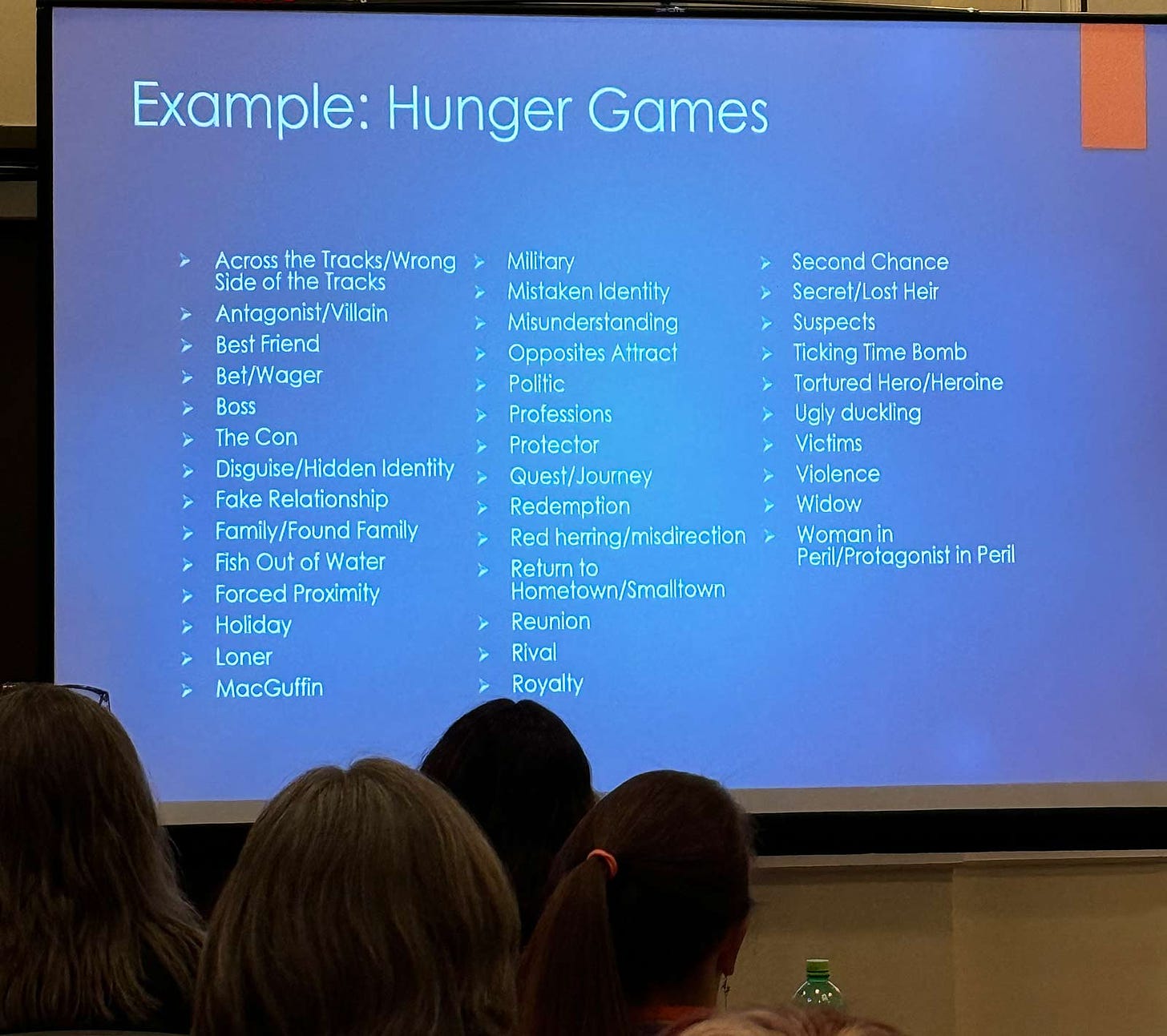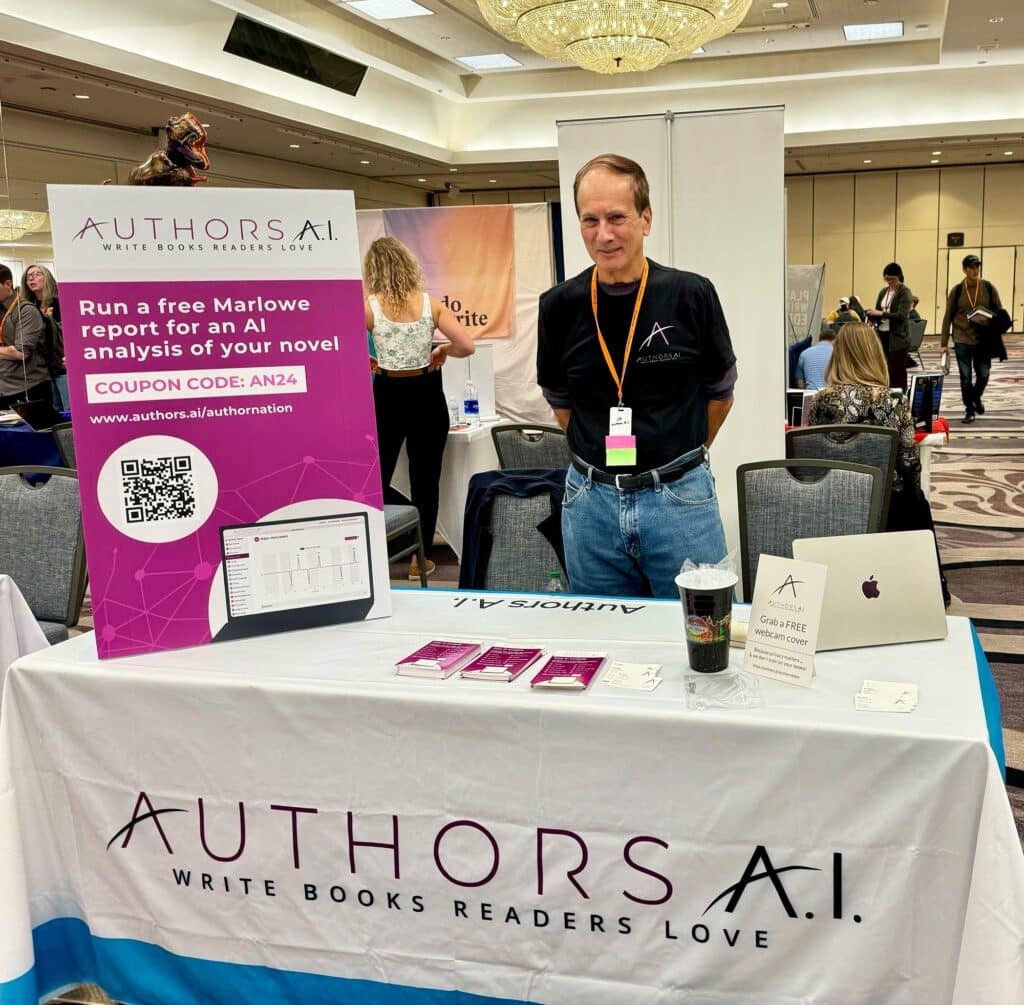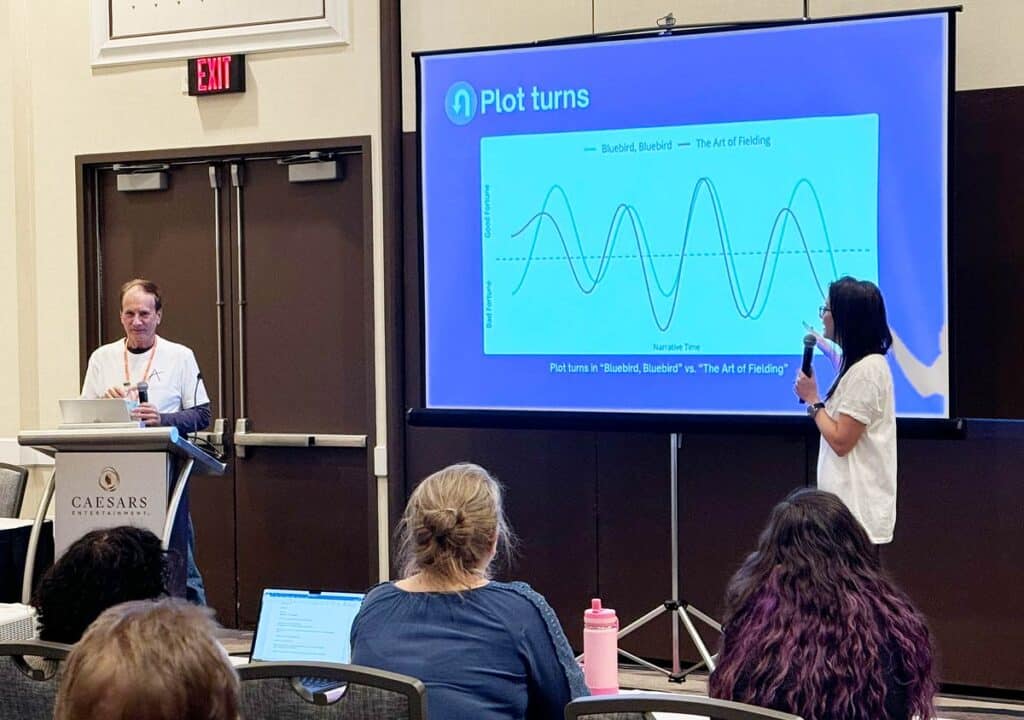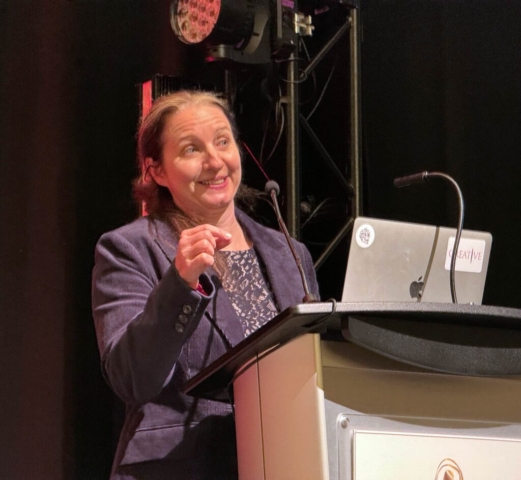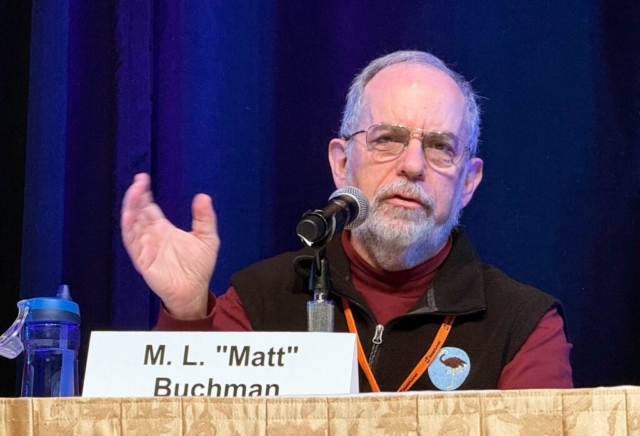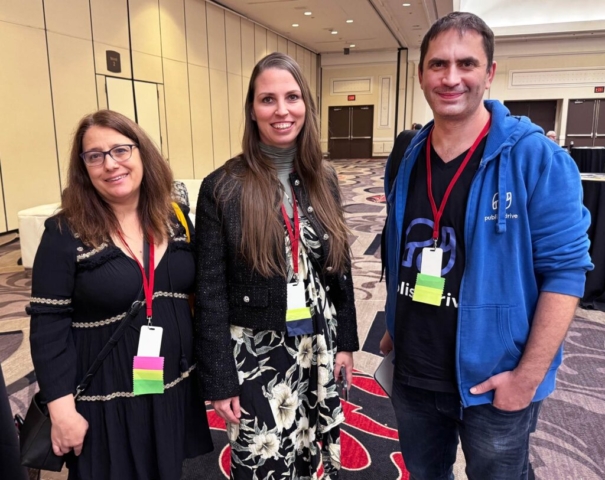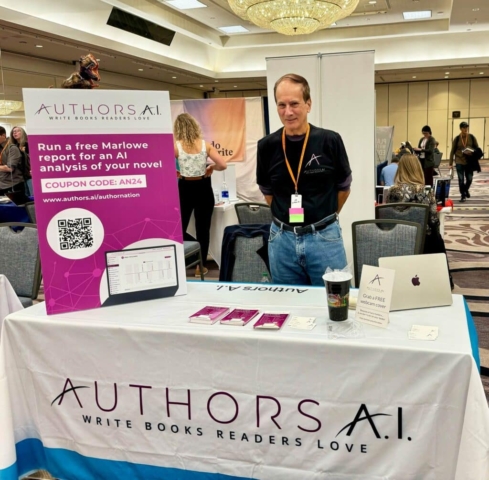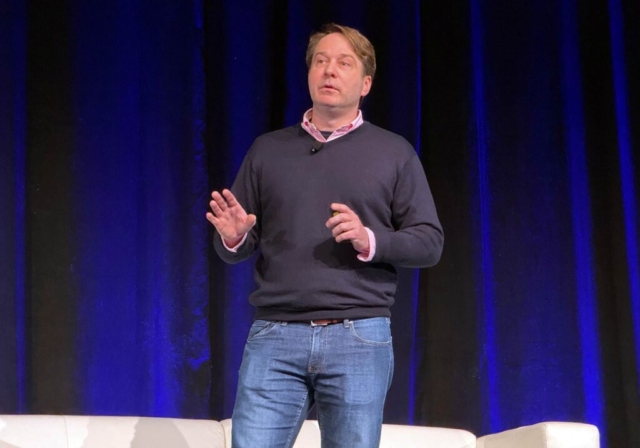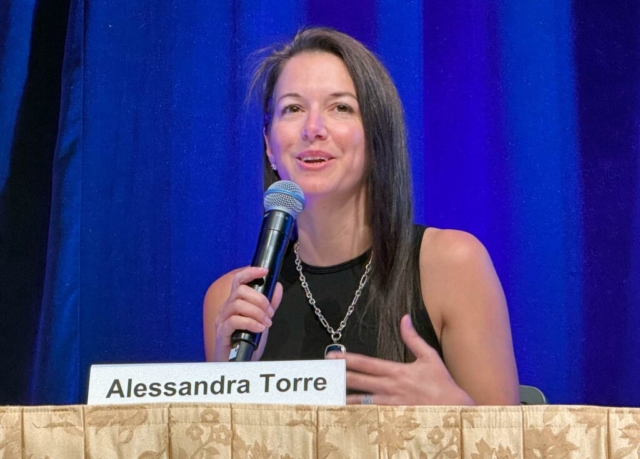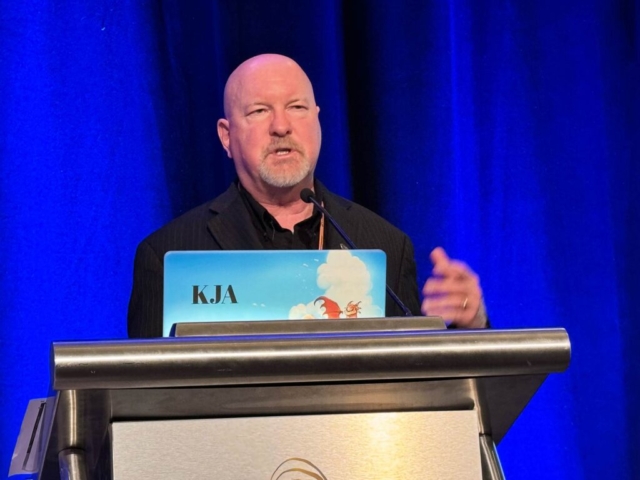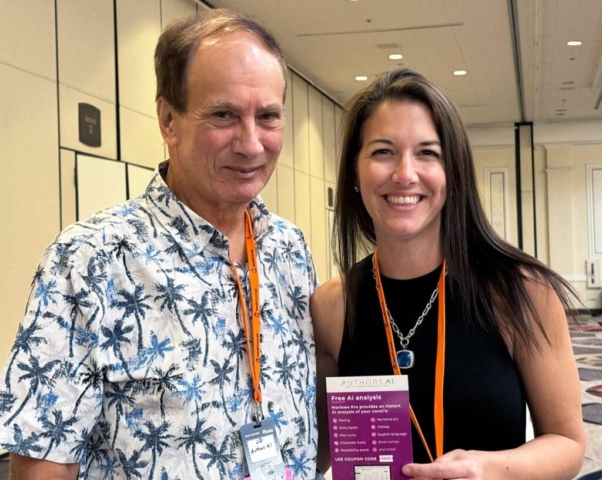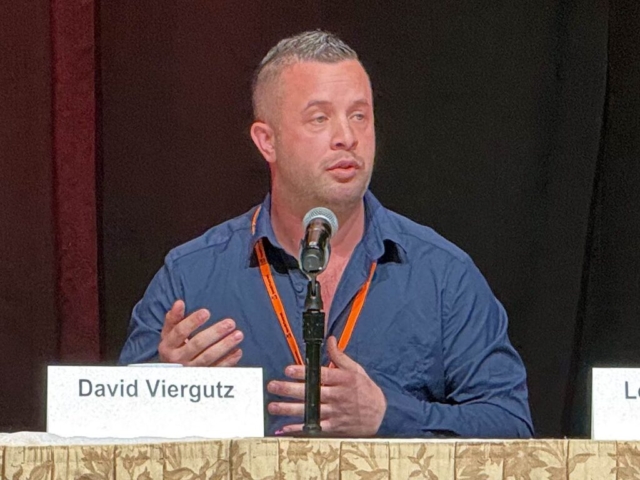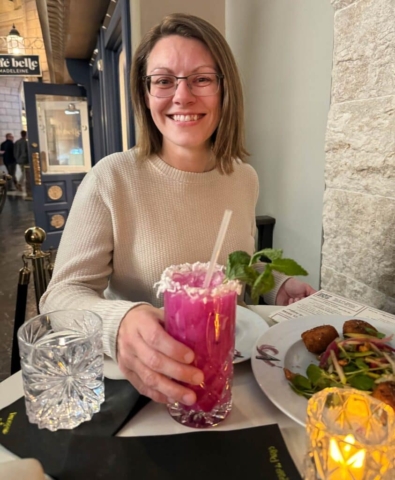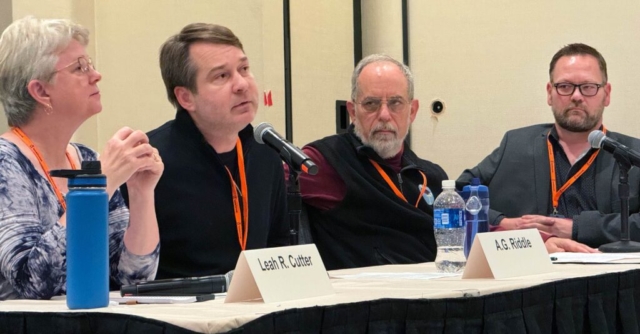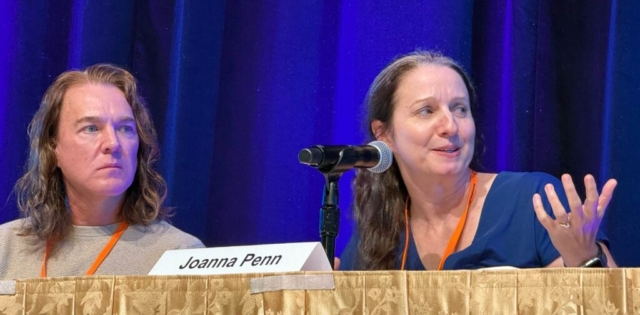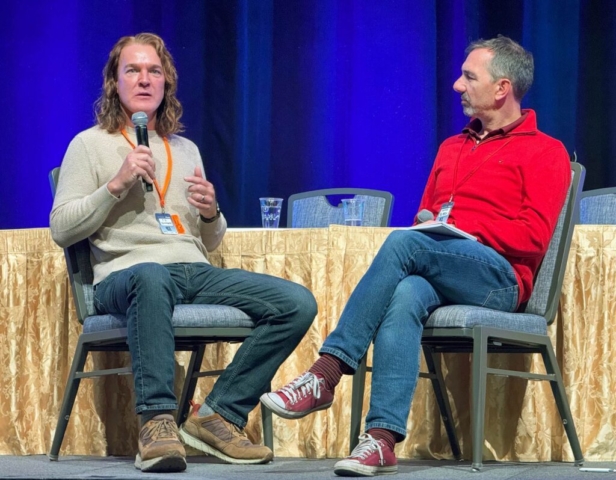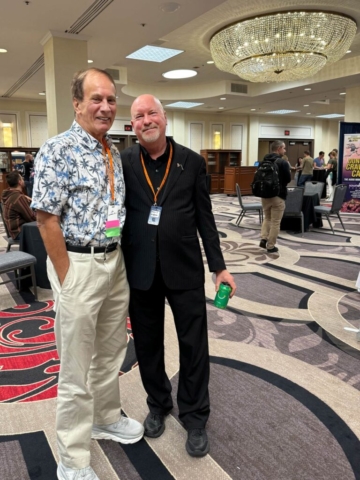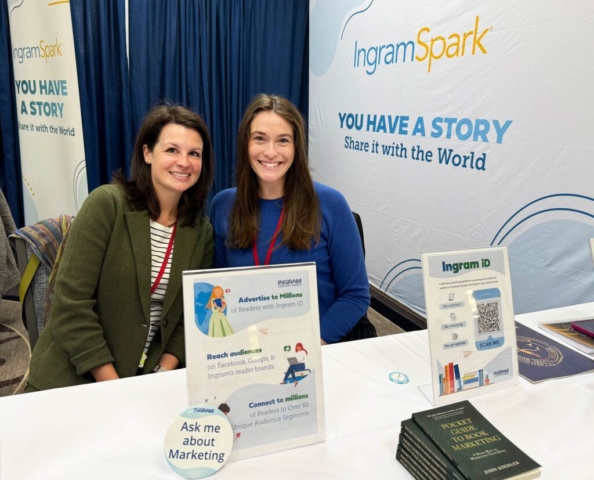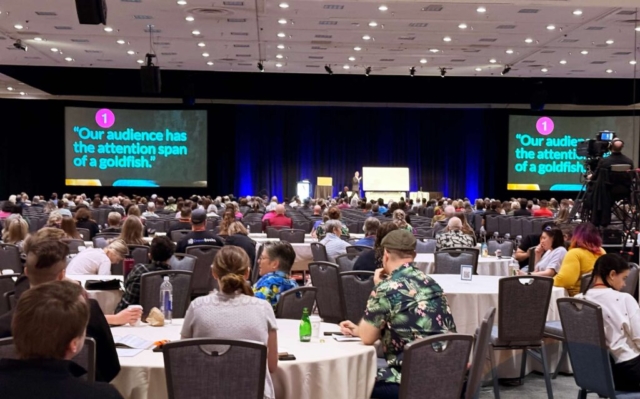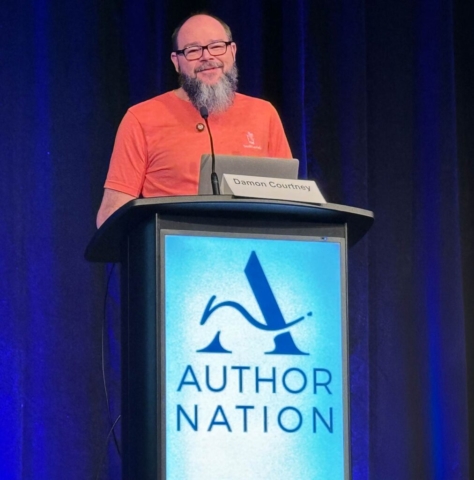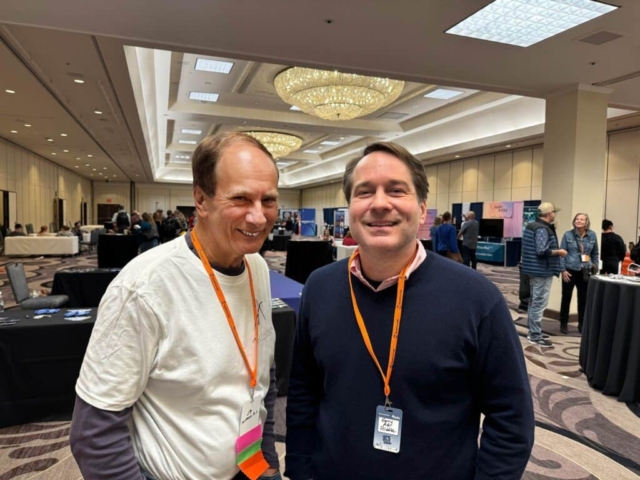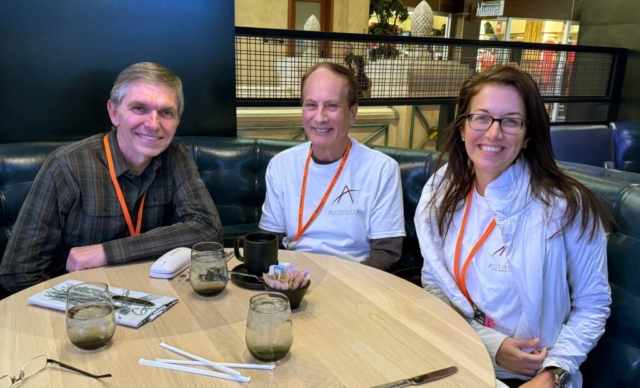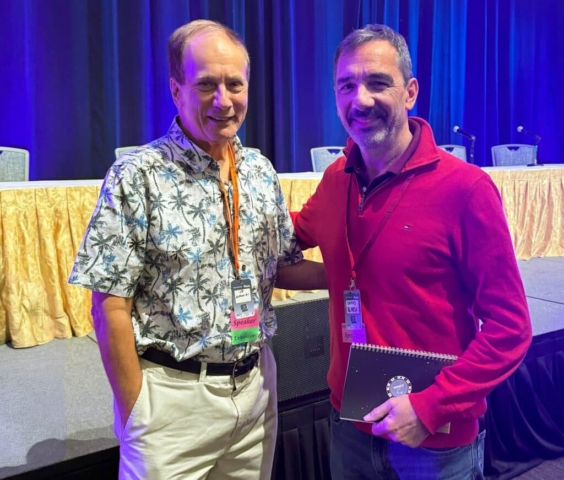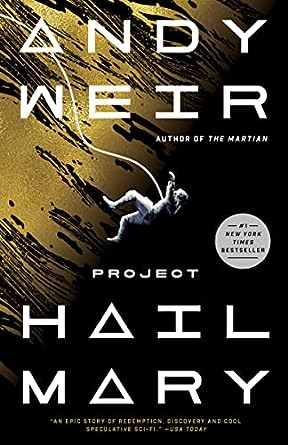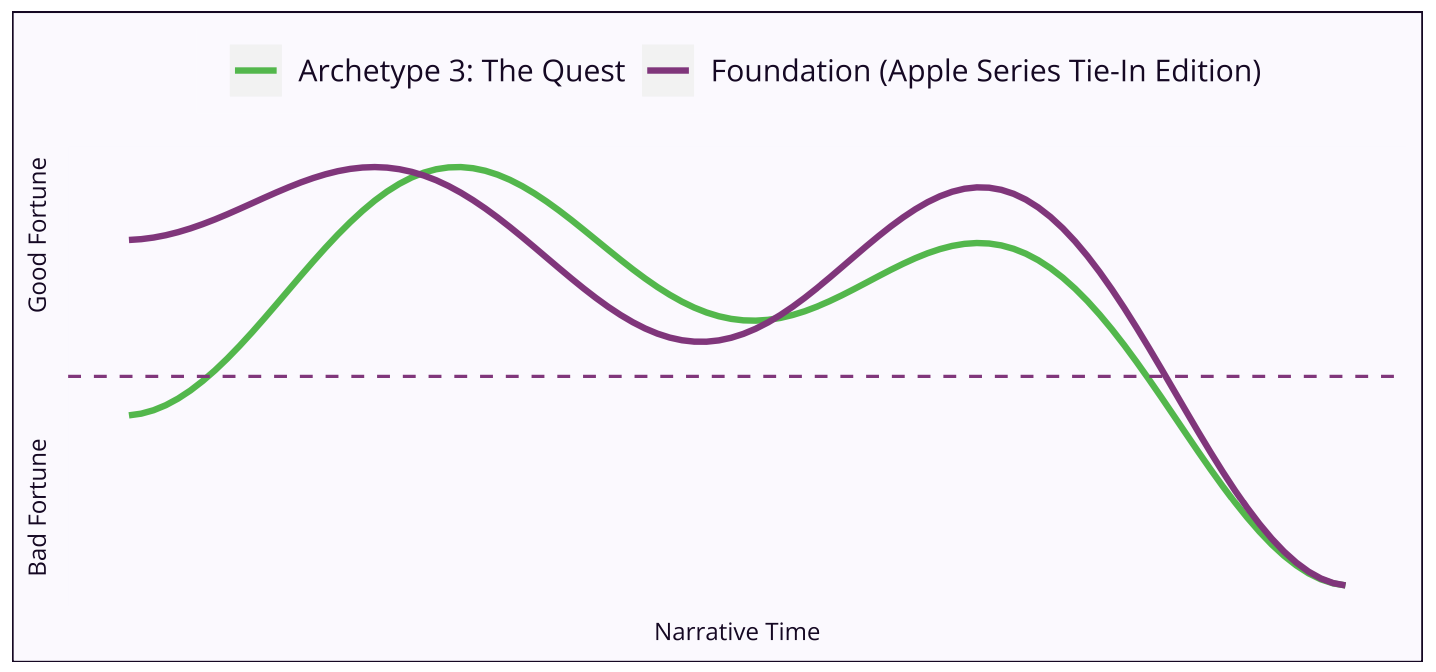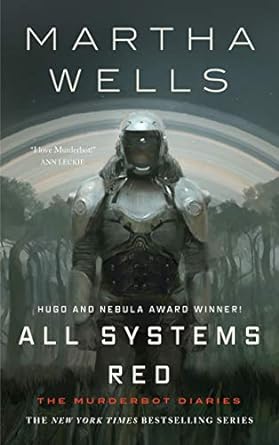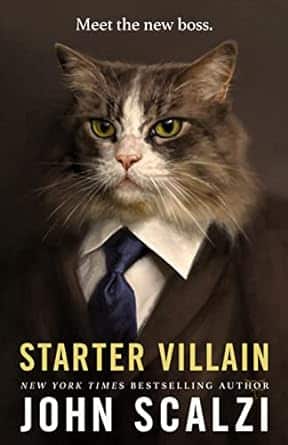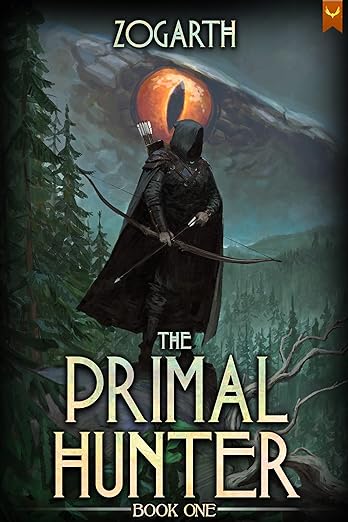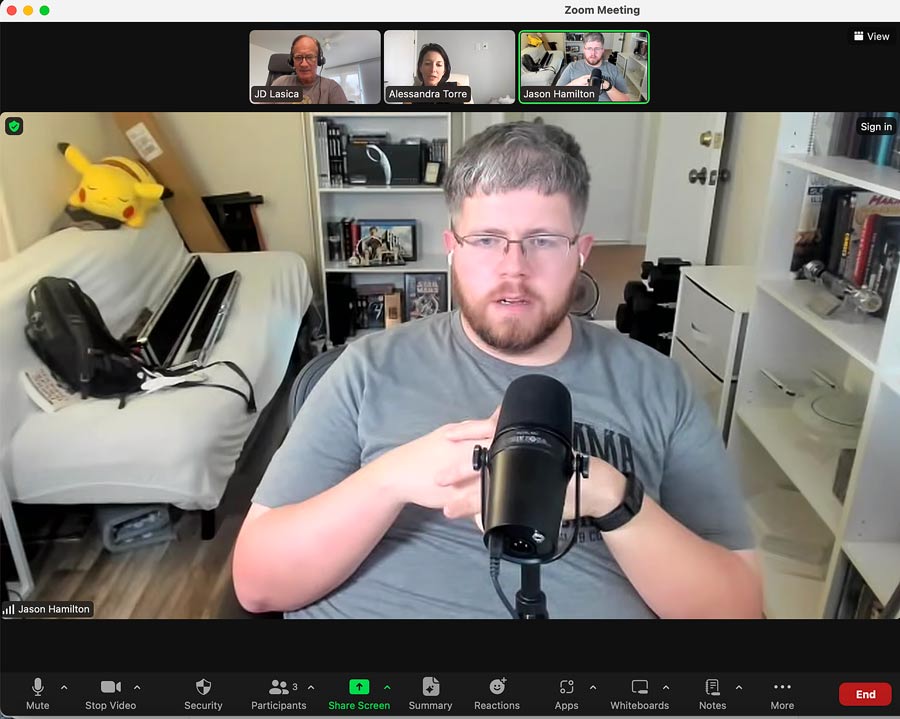| Event | Date | Venue | Cost | Description | Site |
| JANUARY | | | | | |
| Pacific University Master of Fine Arts in Writing Residency Writers Conference. | Jan. 4-14 | Seaside, Ore. | $50 - $75 | The Residency Writers Conference offers ten days of discussions, readings, workshops, and craft lectures with top literary minds. Open to MFA students, instructors, and writers at all levels, it provides an opportunity to deepen your craft and connect with a community that shares your passion for writing. | pacificu.edu |
| Key West Literary Seminar | Jan. 9-12 | Key West, Fla. | $50 | Writers of all levels gather in small groups with esteemed faculty to share their work and explore the craft of writing. Each year features a new theme, and this year's focus, “Family,” dives into how relationships shape our stories, influence our experiences, and expand our understanding of human connection. | kwls.org |
| Writers By Writers Get the Lead Out | Jan. 17-19 | Virtual | $750 | This workshop offers daily craft talks from faculty and small group sessions focused on exploring the art of writing through lectures, exercises, and discussions. Rather than critiquing manuscripts, participants will analyze elements of craft to gain deeper insight into their work and generate new material. Each participant will engage with all three faculty members, making it an opportunity for both beginners and experienced writers to find inspiration and refine their skills. | writingxwriters.org |
| Winter Poetry & Prose Getaway | Jan. 17-20 | Atlantic City, N.J. | $330 - $800 | The 31st annual Winter Poetry & Prose Getaway offers writers a supportive environment to refine their craft and gain fresh inspiration. With workshops in poetry, fiction, nonfiction, memoir, songwriting, and playwriting, participants receive insightful feedback and connect with a welcoming community of fellow writers. | wintergetaway.com |
| Colrain Classic | Jan. 17-20 | Virtual | $1,000 | The Colrain Manuscript Classic is a four-day online intensive designed for poets refining their manuscripts. Participants engage in pre-conference assignments and receive honest feedback from renowned poets, editors, and publishers. The program includes manuscript workshops, editorial Q&A sessions, and strategic guidance to help poets shape and prepare their work for publication. | colrainpoetry |
| Writers’ League of Texas | Jan. 18 | Virtual | $59 - $119 | This conference builds a supportive space to explore the creative process and overcome obstacles such as imposter syndrome, writer’s block, and self-doubt. Engage in meaningful discussions, set actionable goals, and connect with a community that understands your journey. You'll leave with a personalized plan and the motivation to pursue your writing aspirations with confidence. | writersleague.org |
| Tennesse Mountain Writers January Jumpstart | Jan. 18-19 | Oak Ridge, Tenn. | $150 | A meet and Greet with Poetry Leader Lisa Coffman and Fiction Leader Robert Gipe. | TMWI.org |
| Eckerd College Writers in Paradise Conference | Jan. 18-25 | St. Petersburg, Fla. | $450 - $950 | This event offers a diverse literary experience with workshops, roundtables, panel discussions, and manuscript consultations. Participants can engage in Q&A sessions, readings, and book signings while connecting with fellow writers. Covering genres from nonfiction and memoir to crime novels and short stories, the conference provides valuable insights for writers at all stages. | writersinparadise.com |
| Aspen Winter Words | Jan. 29 - Feb. 12 | Virtual/Colorado | $35 | The Winter Words author speaker series offers both in-person and online attendance options. The 2025 lineup includes Pulitzer Prize-winning playwright Ayad Akhtar on Jan. 29 at Paepcke Auditorium, journalist and environmental advocate Kevin Fedarko on Feb. 5 at TACAW, and acclaimed novelist Lauren Groff on Feb. 12 at Paepcke Auditorium. | aspenwords.org |
| Jaipur Literature Festival Programme | Jan. 30 - Feb. 2 | Amer, Jaipur, India | $0 - $155 | The festival brings together prominent voices from literature, politics, science, and the arts to encourage meaningful dialogue and diverse perspectives. It serves as a premier platform for exchanging ideas and sharing experiences, fostering intellectual engagement across various fields. | jaipurliteraturefestival |
| Sunshine State Book Festival | Jan. 31-Feb. 1 | Gainsville, Fla. | $80 | Explore a diverse collection of books and connect with 200 local and regional authors at the Best Western Gateway Grand. This event offers a chance to engage with writers across various genres, attend guest speaker sessions, and enjoy giveaways and storytelling activities. Discover new favorite reads, gain insights into the creative process, and celebrate the joy of storytelling. Whether you're an avid reader or an aspiring writer, this event promises inspiration and connection in a vibrant literary atmosphere. | sunshinebookfestival.com |
| SCBWI Winter Conference | Jan. 31 - Feb. 2 | New York City | $649 - $749 | The annual Winter Conference for children’s book writers and illustrators returns with industry panels, manuscript and portfolio critiques, and the popular Portfolio Showcase for illustrators. Attendees can participate in creative labs led by renowned professionals and explore new programs offering deeper connections to the children's publishing world. It's an opportunity to refine your craft, showcase your work, and connect with industry experts. | SCBWI.org |
| FEBRUARY | | | | | |
| Write On, St. George Winter Writers Conference | Feb. 1 | Ivins, Utah | $55 - $65 | The conference provides a valuable opportunity for writers to connect with peers, industry experts, and potential mentors. Attendees can enhance their writing skills, gain insights into the publishing world, and participate in pitch sessions for traditional publishing opportunities. This event is designed to ignite creativity, boost confidence, and equip writers with the tools and resources needed to advance their careers and achieve their writing aspirations. | writeonstgeorge.org |
| San Fransisco Writers Conference | Feb. 6-9 | San Francisco | $895 | The San Francisco Writers Conference offers writers an exceptional opportunity to refine their craft and understand the business of publishing. With over 100 esteemed presenters and a welcoming, supportive atmosphere, the event fosters a community where writers can connect, learn, and grow. Whether you’re just starting out or looking to take your writing career to the next level, SFWC provides the tools, insights, and connections to help you succeed. | sfwriters.org/ |
| Southern California Writers’ Conference | Feb. 14-16 | San Diego | $90- $500 | The Southern California Writers' Conference is a resource for both veteran and emerging writers, providing the guidance needed to refine manuscripts and navigate the complexities of the publishing world. Through one-on-one evaluations, dynamic critique sessions, and practical workshops, writers gain direct insights into their work, allowing them to elevate their craft. Attendees also benefit from the conference’s industry connections, facilitating opportunities for publication and collaboration. With its focus on both creative and professional development, SCWC equips writers with the tools and confidence to take their writing to the next level. | writersconference.com/sd |
| San Miguel Writers' Conference & Literary Festival | Feb. 15-18 | San Miguel, Mexico | $595-$1,450 | This event marks its 20th anniversary and features a diverse lineup of keynote speakers, including notable authors such as Margaret Atwood, John Irving, and Ruth Reichl, among others. The conference combines elements of both a writers' conference and a literary festival, offering workshops, discussions and networking opportunities for attendees. | sanmiguelwritersconference.org |
| Kaz Conference Writing Workshop | Feb. 19 - March 19 | Virtual | $500 | The Kaz Conference Writing Workshop offers focused cohorts in nonfiction, playwriting, poetry, and fiction, providing writers with opportunities to sharpen their craft and navigate the writing business. Through virtual conferences, bootcamps, and monthly workshops on Zoom, and a renowned 4-day in-person conference, this workshop fosters a supportive environment for writers to grow. Led by award-winning author and activist Donna Kaz, the workshop is where stories come to life and voices are amplified. | donnakaz.com |
| Write to Learn Conference | Feb. 20-21 | Columbia, Mo. | $189 - $289 | The theme for this year’s event was borrowed (with permission) from the title of Bonnie Davis’s book, "How to Teach Students Who Don’t Look Like You: Culturally Responsive Teaching Strategies." Davis was one of the early pioneers in the field now known as Diversity, Equity, and Inclusion (DEI). | writetolearn |
| Wild Seeds Retreat for Writers of Color | Feb. 20-23 | Virtual | $400 | The Wild Seeds Retreat brings together writers of color to connect, create, and grow their craft in a supportive environment. Participants have the opportunity to workshop their writing, gain insights from accomplished authors, and explore the challenges and successes of writing and publishing. With dynamic workshop leaders, the Retreat also offers a platform to celebrate the rich diversity of stories by writers of color. It's a movement focused on amplifying voices and nurturing creativity. | centerforblackliterature |
| American Society of Journalists and Authors Conference | Feb. 24 - 26 | New York City | $659 - $759 | The American Society of Journalists and Authors has hosted its annual conference since 1971, continuously evolving to meet the needs of independent writers, including freelance journalists, content writers, and nonfiction book authors. The 2025 conference is themed "ASJA: Always in Fashion, NYC 2025." This premier event provides writers at all career stages the opportunity to connect with editors, agents, and clients, while highlighting the dynamic changes within the writing industry. | ASJA.org |
| Writer's Symposium by the Sea | Feb. 24 -28 | San Diego | $55 - $299 | Writer’s Symposium by the Sea is an annual event designed to inspire both readers and writers, featuring engaging conversations with exemplary writers from various genres, backgrounds, and perspectives. During each interview, the audience has the opportunity to actively listen as writers share the inspirations behind their work and explore the practices that drive their success. | pointloma.edu |
| Sierra Writers Conference | Feb. 27 - March 8 | Rocklin, Calif. | $65 | Writers and creators need space, intellectual context, and community to thrive. Whether you're an aspiring writer, an expert, or simply an admirer of the craft, you likely cultivate environments that connect you to your passions, networks that support your goals, offer encouragement, and foster relationships. The theme for this year’s Sierra Writers Conference is "Ecosystems," a recognition that writers, craft, and environments are interconnected. | sierrawritersconference |
| MARCH | | | | | |
| Gotham Writers Genre Fiction Writers Conference | March 1 -2 | Virtual | $95 - $425 | The Gotham Writers Genre Fiction Writers Conference is a great opportunity for writers of mystery, horror, science fiction and fantasy to refine their craft and connect with like-minded individuals. This event provides valuable industry insights and a tailored experience to help authors navigate their respective genres. Whether you're looking to sharpen your skills or gain industry knowledge, this conference offers the tools and connections to help bring your genre fiction to life. | writingclasses.com |
| Angelo State University Writers Conference | March 6 -7 | San Angelo, Texas | Free | The Angelo State University Writers Conference in Honor of Elmer Kelton celebrates the legacy of the renowned Western author while offering a platform for local and regional writers to showcase their work. This two-day event features fiction, nonfiction, poetry and prose and provides an accessible, community-focused space for writers of all levels to learn and connect. With free registration for both presenters and attendees, it's an excellent opportunity to engage with others in the literary world and explore your craft within a supportive environment. | angelo.edu |
| Bay to Ocean Writers Conference | March 8 | Wye Mills, Md. | $170 | Now in its 28th year, the event offers a vibrant one-day gathering of writers of all backgrounds to connect, learn and grow. Sponsored by the Eastern Shore Writers Association, the conference provides a valuable opportunity to expand your craft, explore new creative horizons and engage with a community of writers from across the Delmarva Peninsula. Whether you're a seasoned author or a budding writer, this conference is a great place to take your writing to the next level. | easternshorewriters.org |
| Blue Lake Christian Writers Conference | March 12 - 15 | Andalusia, Ala. | $492 | The Blue Lake Christian Writers Retreat offers the benefits of a large conference in a more intimate and personal setting. Writers of all levels, whether focused on fiction or nonfiction, will have the opportunity to learn from experienced professionals. The retreat provides tailored support to help you hone your skills, navigate the path to publication, and connect with a community of like-minded writers in a nurturing environment. | bluelakecwr.com |
| Atlanta Writing Workshop | March 15 | Atlanta | $199 | This one-day "How to Get Published" workshop is designed to provide writers with essential tools and knowledge to succeed in the publishing world. Attendees will learn how to craft compelling queries and pitches, market their work, and understand what catches the attention of agents and editors. Whether you're a beginner or refining your approach, this event offers valuable insights to help you take the next step in your writing career. | atlantawritingworskshop |
| UND Writers Conference | March 19 - 21 | Grand Forks, N.D. | $350 - $1120 | Founded in 1970, the UND Writers Conference has been a celebrated annual event for over five decades, featuring renowned authors such as Gwendolyn Brooks, August Wilson, Tommy Orange, and Colson Whitehead. This three-day gathering fosters community engagement and accessibility, creating meaningful connections between writers and readers. With a rich history of literary excellence, the conference continues to be a cornerstone for cultural discovery and creative exchange. | und.edu |
| Let’s Just Write! An Uncommon Writers Conference | March 21 - 23 | Chicago | $129 | Named one of the best conferences in the U.S. by The Writer magazine for two consecutive years, Let’s Just Write! offers a dynamic, enriching experience. Attendees will participate in over twenty sessions, workshops, and panels, gaining valuable insights from industry experts and refining their craft. This conference provides an exceptional opportunity to connect with fellow writers and elevate your writing journey. | chicagowrites.org |
| Atlanta Self-Publishing Conference | March 22 | Atlanta | $139 - $199 | The Atlanta Self-Publishing Conference takes place each year for authors who are interested in self-publishing or who have self-published and want to get the most out of their publishing business. | atlantawritersclub.org |
| Association of Writers & Writing Programs Conference & Bookfair | March 26 - 29 | Los Angeles | $55 - $255 | The AWP Conference & Bookfair, established in 1973, is a major gathering for writers, editors, publishers, and literary enthusiasts, offering a dynamic platform for networking and professional development. This annual event brings together a diverse creative community, featuring panels, readings, lectures, and a vibrant bookfair with a range of literary presses and journals. With its focus on building creativity and connection, the conference is a vital experience for anyone involved in the literary world. | AWPconference |
| APRIL | | | | | |
| Las Vegas Writers Conference | April 3 - 5 | Las Vegas, Nevada | $449 | The 22nd Las Vegas Writers Conference is dedicated to helping writers of all genres improve their craft, enhance their business skills and connect with publishing professionals. This year, the conference will also welcome virtual attendees from around the world. Registration includes pitch sessions with literary agents and editors, along with opportunities for one-on-one mentoring sessions with faculty members and published authors. | lasvegaswriters |
| Chanticleer Authors Conference | April 3 -6 | Squalicum Harbor, Bellingham, Wash. | $695 | At this gathering you’ll have the opportunity to learn from the best — experts in the field who are eager to share their knowledge. You’ll also learn from each other, exchanging ideas and experiences with fellow writers. Plus, the conference is a prime opportunity for networking, making new friends and building valuable connections. | chanticleerreviews |
| International Conference on Corpus Design, Compilation and Linguistics | April 10–11 | Boston | Not available yet | The event aims to unite leading academic scientists, researchers and scholars to exchange research findings and experiences across all aspects of corpus development and linguistics. | corpusdesign |
| Moravian Writers Conference | April 11–12 | Bethlehem, Pa. | Free | This free conference, which will include both live-streamed and in-person events, will honor the conference's 11th anniversary by focusing on various ways to think about and share stories. | moravianwriters |
| Vision Christian Writers Conference | April 11-15 | Felton, Calif. | Accommodations start at $1,464 | The conference is an annual gathering of collaborative, mutually encouraging writers focused on improving their skills, networking with professionals and enjoying the fellowship of like-minded folks. | vcwconf.com |
| NWG Annual Conference | April 24–26 | Omaha, Nebraska | Not yet available | Three days of consultations, criticism boot camps, and shop talk seminars are available through the Nebraska Writers Guild. First-come, first-served appointments are available at no additional expense with literary agents such as Kristina Slater. For authors who would prefer to concentrate on small-group or pair discussions over big panels, this conference is ideal. Workshops are limited in order to facilitate in-depth conversation and a networking-focused approach devoid of small talk. | nebraskawriters.org |
| Bluegrass Writers Coalition Conference | April 26 | Frankfort, Ky. | $30 - $100 | This all-day event, open to everyone, is packed with engaging workshops, lectures, and panel discussions, offering multiple opportunities to connect with published authors. Attendees will have the unique chance to meet one-on-one with both an agent and a publisher. The 2025 conference will feature speakers and workshop leaders such as award-winning author for young readers Heather Henson, Kentucky's Everyday Heroes author Steve Flairty, publisher, author, and screenwriter Tony Acree, poet and editor Katerina Stoykova (Accents Publishing), and Terry Whalin, Acquisition Editor for Morgan James Publishing. This event is an invaluable opportunity for writers to gain insights, grow their network, and advance their publishing journey. | bluegrasswriters |
| MAY | | | | | |
| Arizona Writing Workshop | May 2 | Phoenix | $169-180 | The Arizona Writing Workshop offers an opportunity for writers to pitch their work to literary agents and editors, receive one-on-one intensive tuition, and get their questions answered by industry professionals. With only 150 seats available, this exclusive event provides invaluable insights and connections to help authors navigate the publishing world. Many past attendees have successfully signed with agents after participating, making this workshop a proven stepping stone toward publication. | arizonawritingworkshop.com |
| Atlanta Writers Conference | May 2-3 | Virtual/Atlanta | Not yet available | Since 1993, the Atlanta Writers Conference has been a premier event for writers seeking to connect with top editors and agents actively looking for new clients. Held annually at the Westin Atlanta Airport Hotel and virtually via Zoom, the conference offers critique sessions, pitch meetings, workshops and author talks. Many attendees have successfully signed with agents and editors they met at the event. | atlantawritersconference.com |
| Pikes Peak Writers Conference | May 2–4 | Colorado Springs, Colo. | $99 | The event provides writers with an opportunity to explore the evolving world of publishing. It encourages attendees to reflect on their current career paths, set meaningful goals and develop strategies to achieve them. Through discussions and insights from industry professionals, writers can gain a clearer understanding of the challenges and opportunities within the publishing world. | pikespeakwriters.org |
| Sonoma Valley Authors Festival | May 2–4 | Sonoma, Calif. | Not yet available | People gather at the Sonoma Valley Authors Festival to hear writers from a range of literary genres and speakers who talk about the latest developments in science, technology, and medicine. | svauthorsfest.org |
| Michigan Writing Workshop | May 3 | Detroit | $29 - $199 | The 2025 Michigan Writing Workshop offers writers a focused, one-day opportunity to learn from industry professionals and gain valuable insights into the publishing world. Attendees can participate in instructional sessions, pitch their work to literary agents or editors and have their questions answered by experts. With a limited number of seats available, the workshop provides a supportive environment for writers to receive personalized feedback and build meaningful connections. Many past participants have successfully connected with agents through this event, making it a valuable step in the writing journey. | michiganwritingworkshop.com |
| Monterey Writers Retreat Conference | May 6–10 | Pacific Grove, Calif. | $1,095 | The conference offers writers the opportunity to work closely with experienced authors and literary agents in a setting that has inspired creatives for over a century. Set against the scenic backdrop of the Monterey Peninsula, it provides a space for writers to reflect, find inspiration, and refine their craft with guidance from industry professionals. | montereywritersretreat.com |
| Storymakers Conference | May 8–10 | Provo, Utah | Visit website for more information | The Storymakers Conference offers a comprehensive learning experience for writers at all stages of their journey. With 100+ sessions led by industry professionals, attendees can explore topics such as cover design, marketing, launching a writing career, and the intricacies of screenwriting. Whether you're an aspiring writer or an established author, this conference provides valuable insights and practical tools to help you navigate the evolving publishing landscape and enhance your craft. | storymakersguild.org |
| IBPA Publishing University | May 15-17 | St. Paul, Minn. | $648-744 | IBPA Publishing University will be a vital event for independent, hybrid, and author publishers, as well as university and association presses. Since 1983, this annual conference has provided a platform for publishers to enhance their skills, expand their networks, and achieve greater success. With over 20 educational programs, including keynote addresses, breakout sessions, and interactive labs, Publishing University 2025 offers valuable insights and tools to help publishers stay competitive and thrive in a constantly evolving industry. The conference's theme, "Connect. Collaborate. Transform!," emphasizes the importance of collaboration and innovation in achieving success. | publishinguniversity.org |
| Looking Glass Rock Writers Conference | May 15–18 | Brevard, N.C. | $680 | The conference, founded in 2016 as a collaboration between Brevard College and the Transylvania County Library, provides an opportunity for small groups of participants to engage deeply with the theme of "A Sense of Place." Attendees work closely with renowned authors, gaining personalized insights and guidance. The event also features free community readings by the workshop leaders, offering a chance for the broader community to experience the literary conversations sparked by the conference. This intimate setting allows for a meaningful exchange of ideas and a stronger connection to the art of writing. | lgrwc.org |
| Kachemak Bay Writers Conference | May 18-21 | Homer, Alaska | $350 - $500 | The conference has been the place where writers from Alaska and beyond come together to create community and learn how to be better writers. You'll find four days of craft classes, agent and editor meetings, panel discussions, readings by the participants and the faculty, and chances for folks to interact and form a lasting community. | writersconf.kpc.alaska.edu |
| Blue Ridge Mountains Christian Writers Conference | May 26–30 | Black Mountain, N.C. | $425 | Founded nearly 40 years ago, the Blue Ridge Mountains Christian Writers Conference offers a supportive environment where authors can grow both professionally and spiritually. The event focuses on helping writers advance their careers while also exploring God's plan for their work. This legacy conference provides a space for writers to connect, learn and reflect on the deeper purpose behind their craft. | blueridgeconference.com |
| Rocky Mountain Fiction Writers Retreat | May 29 – June 1 | Colorado Springs, Colo. | $449 | The stunning Franciscan Retreat Center in Colorado Springs is the venue for this annual retreat. Authors are welcome to work in this peaceful setting, connect with other writers, join a critique group and learn important things from other professionals. The cost of the retreat includes lodging and meals. | rmfw.org |
| JUNE | | | | | |
| TWH Maine “Mini MFA” Writers Conference | June 4–10 | Boothbay Harbor, Maine | $30 | Writers gather in Maine for the tough, immersive TWH program after completing the pre-conference Team Reading. In addition to attending generative Craft Lab classes, writers work on their work in small classes with some of the best writers in the business. | writershotel.com |
| Between the Pages Writers Conference | June 6–8 | Springfield, Mo. | $230 | The Between the Pages Writers Con offers attendees an enriching program that combines engaging courses, valuable networking opportunities and access to industry professionals. Writers will benefit from insightful sessions and expert advice, helping them to refine their craft and connect with others in the literary community. | btpwriterscon.com |
| SWA Writers Conference | June 6-10 | St. Simons Island, Ga. | $100 - $400 | This summer conference is a baluable opportunity for writers in the Southeast to connect in a relaxed and welcoming environment. With workshops focused on writing, publishing, and marketing, attendees can refine their craft, explore publishing opportunities and learn effective strategies for promoting their work. The event fosters a supportive community where writers can network, share experiences and gain valuable insights to help advance their writing careers. | southeasternwritersassociation |
| Write to Publish Conference | June 10-13 | Wheaton, Ill. | $659 | Write to Publish is an essential conference for authors at any stage of their journey, offering valuable connections with editors, publishers and literary agents. The event provides a supportive environment where writers can gain the tools, guidance and opportunities they need to progress in their careers. Whether you're just starting or seeking to advance as a published author, this conference is designed to empower you with the knowledge and resources to reach your writing goals. | writetopublish.com |
| NonfictionNOW | June 11-13 | South Bend, Ind. | Not yet available | NonfictionNOW serves as an inspiring gathering of nonfiction writers, offering a space for both established and emerging voices to explore the diverse and evolving world of nonfiction storytelling. The conference highlights the genre's broad spectrum, from literary and political essays to memoir and other forms like reality TV. It creates an environment where attendees can engage in enriching discussions, share ideas, and deepen their understanding of nonfiction's dynamic possibilities. This event fosters a sense of community and intellectual exchange for those passionate about nonfiction writing. | nonfictionow.org |
| Bread Loaf Environmental Writers’ Conference | June 15-21 | Ripton, Vt. | $2,855 | This event offers an intimate, immersive experience for writers committed to refining their craft. With small workshops of no more than ten participants, each writer receives focused, personalized attention and constructive feedback on their manuscript. One-on-one meetings with workshop leaders provide additional tailored guidance, helping writers deepen their understanding and elevate their work. The conference's pre-event manuscript packet distribution allows for thoughtful preparation, ensuring productive, insightful discussions that contribute to each writer’s growth and journey. | middlebury.edu |
| Travel Blog Exchange | June 16-19 | Québec City, Canada | $597-$897 | TBEX is a premier event for travel creators, offering valuable opportunities to connect with industry experts and leading brands in areas like storytelling, SEO, photography, video production, influencer marketing and social media. Whether you're an experienced travel blogger or a newcomer, the conference provides a wealth of insights and practical strategies to help you grow your audience and monetize your content. | tbexcon.com |
| Writing and Illustrating for Young Readers Conference | June 16-20 | Draper, Utah | $151-$180 | Writing and Illustrating for Young Readers offers a dynamic, immersive conference experience each June, featuring in-depth morning workshops where participants collaborate with specialists to refine their manuscripts. The conference also includes plenary and breakout sessions in the afternoons, providing opportunities for writers to expand their knowledge of the craft and gain valuable insights into the world of writing and illustrating for young readers. This event is designed to foster growth and skill-building in a focused, supportive environment. | wifyr.com |
| ThrillerFest | June 17–21 | New York City | $168 - $1,429 | Prominent thriller authors including Dennis Lehane will present master classes, workshops, pitches, panel discussions and more with other professionals. Self-published authors, professionally published authors, and unpublished authors looking for query letter or manuscript assistance can all take advantage of the conference's PitchFest and QueryFest. Day passes, event-specific pricing or package pricing are available. | thrillerfest.com |
| Western Writers of America | June 18-21 | Amarillo, Texas | Not yet available | Each year, Western Writers of America holds its annual convention somewhere in the American West. Members, agents, publishers, editors, and more gather to talk shop, learn, teach, make connections, renew friendships and enjoy music performed by our members. | westernwriters.org |
| St. David's Christian Writers’ Conference | June 18–22 | Meadville, Pa. | $325-$625 | St. David's stands out as an intimate, community-driven conference where writers connect on a personal level. Rather than a crowded, impersonal event, it provides opportunities to form meaningful relationships through small gatherings, genre group meetings, and casual conversations over lunch. The focus is on authentic, face-to-face interactions, allowing attendees to engage with one another in ways that foster both professional and personal growth. The setting offers writers the chance to build a supportive network while sharing their passion and projects in a welcoming environment. | stdavidswriters.com |
| Minnesota Northwoods Writers Conference | June 23–28 | Bemidji, Minn. | Not yet available | Hundreds of participants from Minnesota and around the United States have had the chance to collaborate directly with award-winning faculty members thanks to the Minnesota Northwoods Writers Conference. The event provides a variety of scholarships to help up-and-coming authors, significant voices, and civic leaders. There are a ton of seminars, Q&A sessions, and panel discussions included. | northwoodswriters.org/ |
| Historical Novel Society North America | June 26-28 | Las Vegas, Nevada | Visit website | Historical novelists, readers, editors, agents and speakers from all across North America and beyond come together for the biennial conference of the Historical Novel Society North America. Founded in 2005, the event provides attendees with a comprehensive schedule of workshops, panel discussions and networking opportunities centered around the business and artistry of historical fiction. Attendees can anticipate networking with other genre fans, interacting with professionals in the field and learning about publishing trends. | historicalnovelsociety.org |
| JULY | | | | | |
| Port Townsend Writers Conference | July 13–20 | Port Townsend, Wash. | Visit website for more information | The Port Townsend Writers Conference brings together writers of all levels in an inspiring and inclusive environment to explore their craft, spark creativity, and build connections within a diverse literary community. Through craft-centered workshops, lectures, readings, and open mics, participants engage in meaningful conversations and creative exploration. The conference fosters an atmosphere where writers can share their perspectives, take creative risks and support one another’s growth, making it a valuable experience for both emerging and established writers. | centrum.org |
| Romance Writers of America Conference | July 16-19 | Ontario, Canada | $450 - $650 | Since its inception in 1981, the RWA annual conference has been a must-attend event for romance authors and industry professionals seeking to learn, grow and advance their careers. The conference provides a range of workshops, panels and networking opportunities centered around the craft and business of writing romance, allowing attendees to connect with other publishing professionals, editors, agents and other authors. | rwa.org |
| Association of Legal Writing Directors Conference | July 16-19 | Phoenix | Visit website for more information | Since 2001, ALWD has hosted a national conference every odd year, bringing together the legal writing community to exchange ideas on scholarship, leadership, teaching and issues affecting legal education and writing programs. This conference provides valuable networking opportunities, allowing attendees to connect both formally and informally. Held over two and a half days, the conference rotates locations, offering an opportunity for legal writing professionals to collaborate, share insights and address the challenges facing their field. | alwd.org |
| Golden Crown Literary Society Conference | July 16–20 | Albany, N.Y. | $500 | The Golden Crown Literary Society’s annual conference offers a space for authors and readers passionate about women-loving-women and sapphic literature to connect, learn and celebrate the genre. Bringing together writers, editors, publishers and fans, the event fosters meaningful discussions, networking opportunities and a deeper appreciation for diverse storytelling. Whether seeking inspiration, industry insights or a supportive community, attendees can engage with the evolving landscape of sapphic literature in an inclusive and welcoming environment. | GCLSannualconference |
| Readercon | July 17–20 | Burlington, Mass. | Visit website for more information | Readercon offers a space for speculative fiction enthusiasts to immerse themselves in discussions, readings and workshops that deepen their understanding of the genre. With a carefully curated program, attendees can engage with authors in intimate settings, gain valuable insights through panel discussions and participate in activities that foster a strong literary community. The conference also highlights the significance of recognizing talent through awards such as the Cordwainer Smith Rediscovery Award and the Shirley Jackson Awards. | readercon |
| Realm Makers Conference | July 17-20 | Grand Rapids, Mich. | Visit website for more information | Realm Makers was founded by Becky Minor in 2012 to create a welcoming space for authors in the Christian speculative fiction genre — those who felt out of place in mainstream Christian writing conferences or at comic-con events. The conference was born out of the need for a community where authors could celebrate their shared passion for fantasy and science fiction in a setting that was both religiously inclusive and genre-specific. | devosplace.org |
| Sun Valley Writers Conference | July 19-21 | Ketchum, Idaho | $550 - $1,100 | The Sun Valley Writers' Conference, founded in 1995, is a prestigious event that brings together a diverse community of writers, from novelists and poets to journalists and playwrights. Held annually in Sun Valley, Idaho, the conference offers a dynamic program of lectures, workshops, and discussions, fostering valuable connections and creative growth. Given its high demand, early registration is essential, as passes often sell out quickly once available. The conference serves as an enriching platform for writers to engage with their craft and with other professionals in the literary world. | SVWC |
| Napa Valley Writers' Conference | July 20–25 | Napa, Calif. | Prices available in March | The Napa Valley Writers’ Conference provides a unique opportunity for writers to immerse themselves in a supportive literary fellowship while honing their craft in an inspiring setting. Surrounded by the region's scenic foothills and vineyards, attendees engage in workshops, readings and discussions that foster both creative growth and meaningful connections within the writing community. The conference’s emphasis on craft and camaraderie makes it a valuable experience for writers at all stages of their journey. | napawritersconference.org |
| Taos Writers Conference | July 25-27 | Taos, N.M. | $175 - $570 | The Taos Writers Conference offers a supportive environment for writers of all levels to enhance their craft through workshops, intensives, and roundtable discussions. Sponsored by the Society of the Muse of the Southwest, the conference provides valuable opportunities to learn from experienced faculty, attend inspiring keynote readings and immerse in the rich literary culture of Taos. Recognized as one of the top conferences in the Southwest, it serves as a meaningful space for writers to develop their skills and connect with a vibrant community. | somostaos.org |
| Willamette Writers Conference | July 30 - Aug. 3 | Portland, Ore. | $30 - $77 | The conference provides a welcoming space for writers of all levels and genres to develop their craft and advance their careers. Through workshops, keynotes, and personalized feedback opportunities such as pitches and critiques, attendees can refine their skills and gain insights from industry professionals. This conference fosters a supportive community where writers — whether screenwriters, poets, journalists, or novelists — can explore their creativity, share their work and build meaningful connections to support their writing journey. | willamettewriters.org |
| Mendocino Coast Writers Conference | July 31 – Aug. 2 | Mendocino, Calif. | Registration opens March 15 | The Mendocino Coast Writers’ Conference is a vibrant gathering that offers Morning Workshops in a wide range of genres. Afternoons are packed with craft seminars, panels, one-on-one consultations and open mics; and every evening offers an opportunity to enjoy the camaraderie and connections. | mcwc.org |
| Cape Cod Writers Center Conference | July 31 – Aug. 3 | Hyannis, Mass. | Prices available in spring | The Cape Cod Writers Center is dedicated to supporting both published and aspiring writers of all genres, abilities and ages in honing their craft and gaining a deeper understanding of the business aspects of writing, including editing, publishing and promotion. | capecodwriterscenter.org |
| AUGUST | | | | | |
| Postgraduate Writers’ Conference | Aug. 2-8 | Montpelier. Vt. | $1,150 | VCFA’s annual Postgraduate Writers’ Conference celebrates its 30th year as a haven for serious, emerging practitioners seeking to connect, recharge, and lift their process and craft to new levels. The heart of the conference’s model is intimate workshop groups limited to five or six writers, led by a member of the Vermont College of Fine Arts' acclaimed faculty. | vcfa.edu |
| Killer Nashville International Writers’ Conference | Aug. 21-24 | Nashville, Tenn. | $469 with discounts and day passes available | Killer Nashville is the premier forum for all genres incorporating mystery, thriller, suspense, action, or romance elements; learn, present, meet agents & editors, sign books, mingle with forensic experts and network. The goal is simple: to educate and empower aspiring and established writers, and connect them with other industry professionals. | killernashville.com |
| Bubonicon Sci-Fi & Fantasy Literary and Arts Convention | Aug. 22-24 | Albuquerque, N.M. | $43 - $159 | Bubonicon, New Mexico's longest-running science fiction and fantasy convention, has become a cornerstone of the Albuquerque literary and arts scene. The event brings together leading authors, artists, and scientists through panels, presentations, and interactive activities, including a costume contest, art show, dealer’s room and charity auctions. With its Green Slime Awards and fan programming, Bubonicon provides a fun and engaging atmosphere where fans and creators come together to celebrate the worlds of science fiction and fantasy. | bubonicon.com |
| SEPTEMBER | | | | | |
| American Christian Fiction Writers Conference | Sept. 5-8 | New Orleans | Visit website for more information | The conference brings together seasoned authors and newcomers to Christian fiction for a chance to learn, grow and network. Attendees gain valuable knowledge from expert instructors, inspiring keynote speakers and industry professionals. This event offers an opportunity to interact with fellow writers, pitch ideas to agents and editors, and receive mentorship that can help advance their careers. For anyone passionate about Christian fiction, the ACFW conference is a significant step forward in their writing journey. | acfw.com |
| Travel Blog Exchange Europe Conference | Sept. 9-12 | Letterkenny, Ireland | $477 - $797 | TBEX is a premier event that brings together successful travel creators, top industry brands and leading experts from fields like storytelling, SEO, photography, video, influencer marketing, social media and content marketing. The conference offers insights and networking opportunities for professionals aiming to enhance their skills and grow their presence in the travel industry. TBEX America takes place Oct. 1-4. | tbexcon.com |
| American Night Writers Association Conference | Sept. 19-21 | Virtual/ Phoenix | $40 - $240 | The American Night Writers Association holds an annual conference specifically for members of The Church of Jesus Christ of Latter-day Saints (LDS), welcoming writers of all levels and genres. The event provides a variety of workshops, writing classes, manuscript critique sessions, pitch opportunities and networking events. Attendees also have the chance to enjoy a Friday Night Gala, offering a relaxed setting for authors to connect with peers and special guests. This conference is an excellent opportunity for writers to improve their craft and build relationships within the LDS writing community. | americannightwriters.org |
| Moonlight & Magnolias Conference | Sept. 25–27 | Norcross, Ga. | $295 - $420 | The conference offers writers of all experience levels the chance to refine their craft, navigate the publishing industry and connect with a supportive writing community. Attendees will benefit from engaging workshops, inspiring keynote speakers, editor and agent appointments, and book signings. New features like an on-site natural light headshot photographer and morning yoga sessions enhance the experience. Returning favorites, including the Midnight Madness Pajama Sprint Party, ensure that the conference is both productive and enjoyable. | garomancewriters.org |
| Rocky Mountain Fiction Writers Conference | TBA | Denver/Aurora, Colo. | Not yet available | RMFW hosts the Colorado Gold Writers Conference each September. It has not yet released details about its 2025 conference. | rmfw.org |
| OCTOBER | | | | | |
| Travel Blog Exchange Summit America Conference | Oct. 1-4 | Virtual/Wichita, Kansas | $347- $697 | TBEX is a premier event that brings together successful travel creators, top industry brands and leading experts from fields like storytelling, SEO, photography, video, influencer marketing, social media and content marketing. The conference offers insights and networking opportunities for professionals aiming to enhance their skills and grow their presence in the travel industry. | tbexcon.com |
| Book Harvest Convention | Oct. 2-5 | Chicago | $225 | The inaugural autumn and spooky-themed literary convention in the heart of the Midwest offers a fresh and exciting experience for attendees. The event promises to bring together fans and creators to celebrate the eerie charm of the season with a diverse lineup of authors, vendors and narrators. Attendees can look forward to engaging panels, book signings and immersive activities, making it a perfect opportunity for those who enjoy the spooky season to connect and explore the world of literary horror and the supernatural. | eventbrite |
| Write on the Sound | Oct. 3-5 | Edmonds, Wash. | Prices available in August | Write on the Sound, founded in 1985, is an intimate and affordable writers' conference held annually in Edmonds, Wash. With a focus on the craft of writing, WOTS offers a variety of sessions, workshops and panel discussions tailored to writers of all levels and interests. Attendees gain valuable insights into both the art of writing and the current trends in the publishing industry. Whether you're an aspiring writer or a seasoned professional, this conference provides the tools and connections needed to advance your writing journey. | edmondswa.gov |
| The Literary/Commercial Fiction Writers Conference | Oct. 4–5 | More information available soon | Prices available in May | More information available soon | writingclasses.com |
| Ozarks Creative Writers Conference | Oct. 9–11 | Eureka Springs, Ark. | Prices available in March | The conference is geared to writers at all stages of their careers, from newcomers to seasoned authors. With a focus on refining craft and fostering creativity, the conference offers workshops and sessions designed to inspire growth and exploration of new ideas. It also provides an opportunity for writers to connect with key industry professionals such as editors, agents and publishers, paving the way for networking and career advancement. OCW serves as an essential gathering for those looking to elevate their writing journey. | ozarkscreativewriters.com |
| Writer’s Digest Conference | TBA | More information available soon | Not yet announced | Writer’s Digest has not yet released details of plans for its 2025 conference. | writersdigestconference.com |
| World Fantasy Convention | Oct. 30 - Nov. 2 | Brighton, U.K. | £175 | The World Fantasy Convention is an annual gathering to celebrate Fantasy & Horror. It brings together professionals working within the genres, particularly within the fields of literature and art. 2025’s event also includes Fantasycon, the UK’s annual fantasy and horror convention run by the British Fantasy Society. | worldfantasy2025.co.uk |
| NOVEMBER | | | | | |
| Author Nation Conference | Nov. 3-7 | Las Vegas, Nevada | $109 - $649 | The Author Nation conference stands as a pivotal event for independent authors, focusing on data-driven strategies and community building to help advance writing careers. With its insightful workshops, engaging panel discussions, and ample networking opportunities, the conference equips authors with the tools and knowledge to navigate the ever-changing publishing world. Participants have the chance to connect with industry experts and fellow authors, gain valuable marketing insights, and expand their understanding of the publishing landscape, making it an essential experience for any indie writer looking to succeed. | authornation.live |
| Kauai Writers Conference | Nov. 14-16 | Kauai, Hawaii | $95 - $795 | The Kauai Writers Conference has become a premier destination for writers of all experience levels, offering a mix of workshops, one-on-one consultations, and networking opportunities with bestselling authors and publishing professionals. Set in the stunning environment of Kauai, the conference combines expert guidance with the island's inspiring beauty, providing attendees with a unique opportunity to sharpen their skills, gain invaluable insights, and make connections that will propel their writing careers forward. This event promises to be a transformative experience for writers looking to enhance their craft. | kauaiwritersconference.com |
| Philcon | Nov. 21-23 | Cherry Hill, N.J. | Not yet available | Philcon is a longstanding convention that celebrates the worlds of science fiction, fantasy and horror across a broad spectrum of media. Attendees can enjoy a rich program that covers literature, art, television, film, anime, comics, gaming and more. The convention also provides a Writer’s Workshop, offering aspiring writers the chance to gain insights and guidance from established professionals in the industry. | philcon |
| Rochester Writers’ Conference | Nov. 29 | Virtual/Rochester, Mich. | Free | The Rochester Hills Public Library serves as a cornerstone of the community, offering a welcoming space for lifelong learning, reading, and discovery. With a commitment to equal access to information, the library provides a variety of innovative programs designed to inspire and engage patrons of all ages. Popular offerings include the annual summer reading challenge, parent-child workshops, and weekly lectures that bring the community together for enriching experiences. | rochesterwriters.com |


